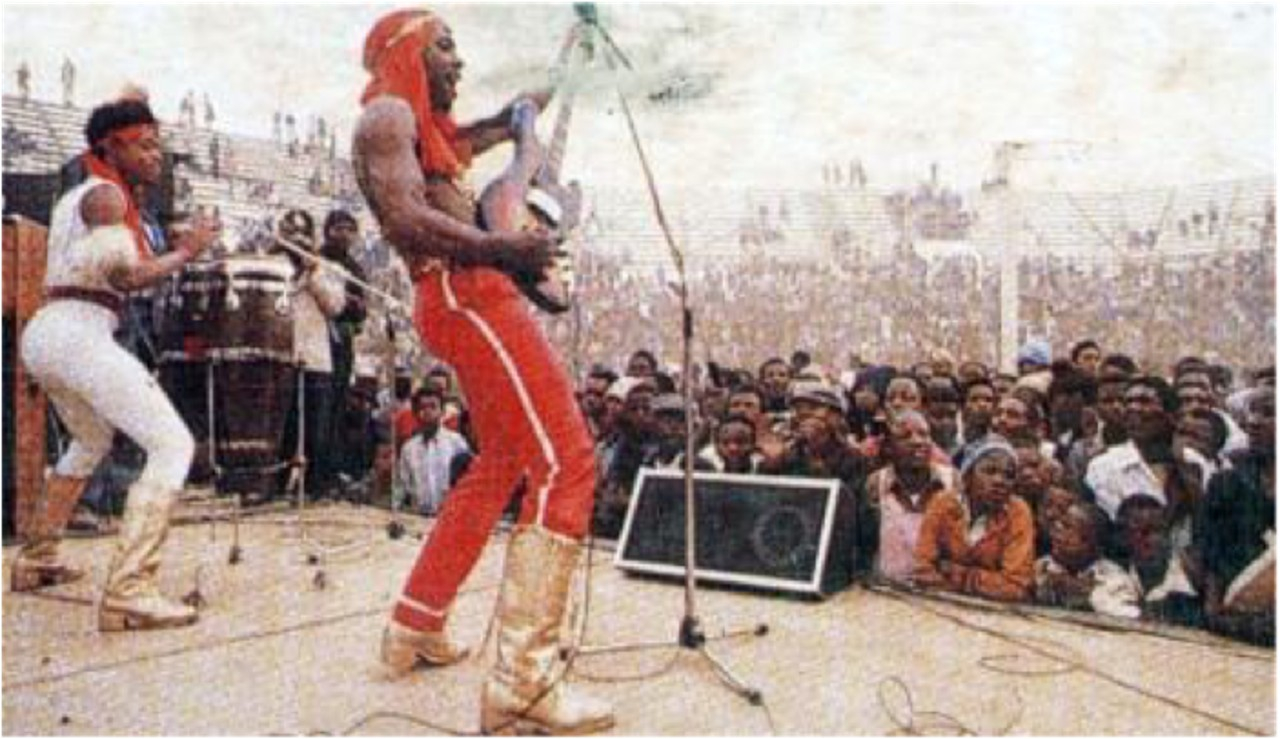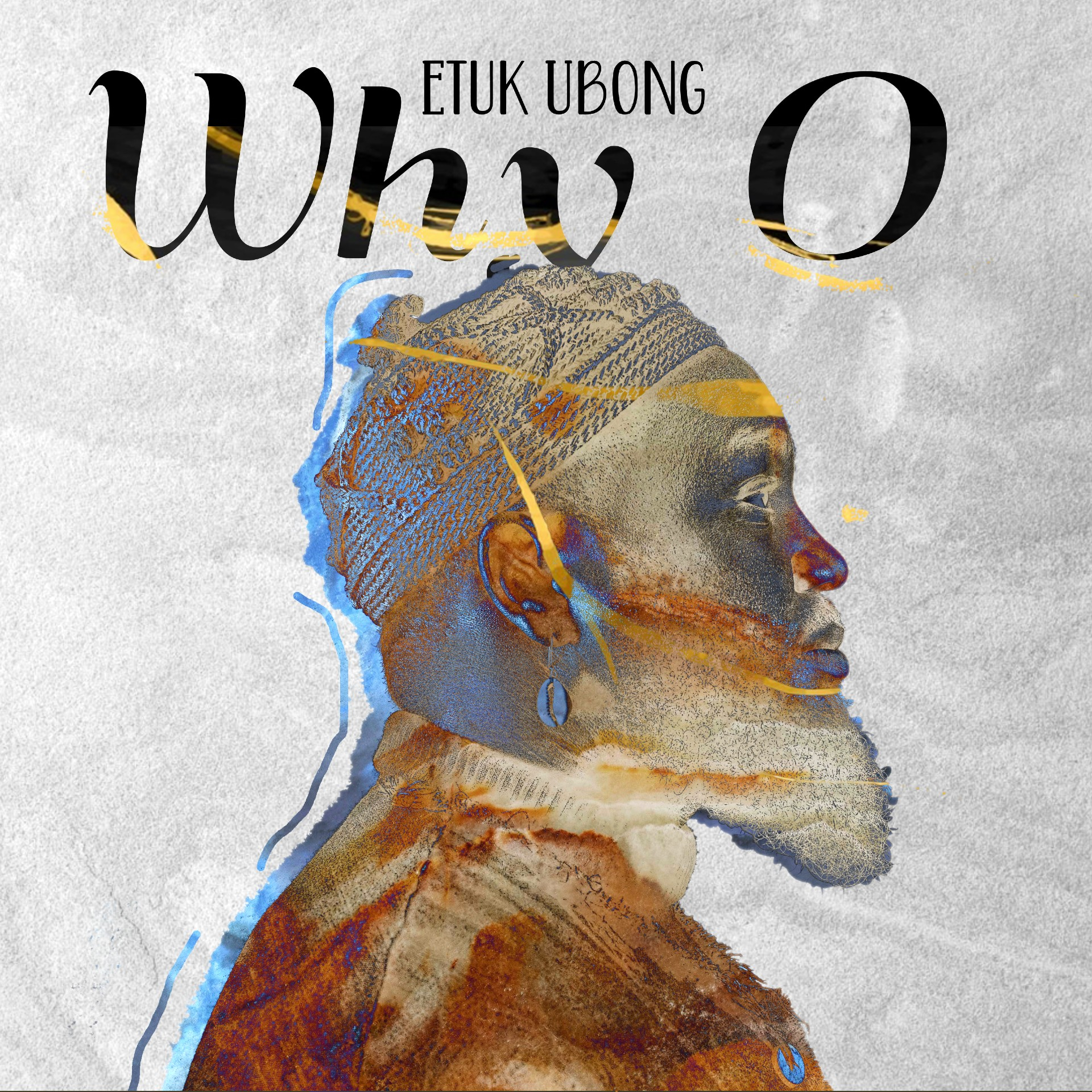The significance of Harari as one of the most important bands from the late 60's to the early '80s and its influence on popular music in Southern Africa cannot be overstressed. Harari's musical excellence and influence on generations of musicians are equal to legends like 'Third World' or 'Funkadelic'.
EARLY PERIOD: THE FORMATION OF THE BAND AS ‘THE BEATERS’
The story of South Africa’s all-time favourite band began on April 18, 1968, at Orlando West High School, Soweto under the stewardship of the highly respected principal Dr. Matseke who has since departed. May his soul rest in peace. Four high school friends came together to form a school band so that they could perform at a local fundraising event.
The group was named ‘The Beaters’, an obvious reference to the UK’s favourites ‘The Beatles’, but with more similarities than just the name. Both bands had four young males who came together to make music and were loved by many. What ‘The Beatles’ were to the UK, ‘The Beaters’ became to South Africa.
After the performance at the school event, The Beaters became a hot property. They started performing in different venues around the country as they were getting more and more popular. It is worth mentioning as to who were these young lads who were part of this group. The original members were Fikile Selby Ntuli (Guitar), Sipho Hotstix Mabuse (Drums), Om Alec Khaoli (Bass Guitar), and Monty Saitana Ndimande (Guitar)
EARLY RECORDINGS
The Beaters recorded their first album ‘Soul a go-go’ in 1969 and was followed by ‘Bacon and egg’ in 1970 and ‘Mumsy Hips’ in 1971. The band was playing a music which was popular at the time called township soul. They popularized it in essence, and in doing so they were a force to be reckoned with. Yes, there were other groups like The Flaming Souls, The Wavelets, The Movers, The Hurricanes, and The Flames at the time, but The Beaters were a class act in a league of their own.
It came as no surprise that members of the group, in particular Sipho Hotstix Mabuse and Om Alec Khaoli, were being hired to assist the recording of South Africa’s musical gems of the ’70s by jazz giants like Bra Kippie Morolong Moeketsi, Bra Pat Matshikiza, and Bra Basil 'Mannenberg' Coetzee.
It is said that Bra Kippie Moeketsi was skeptical in playing Jazz with these youngsters, but when they started playing he was blown away. Even recently jazz artists, who came together to re-record ‘Tshona’ – the title track from the legendary release of 1975 and other songs from that album, could not reach the level of the original that featured the two members of The Beaters. Their soft spot or should we say their experience in recording with these jazz giants can be noticed in one of their songs titled ‘Soweto down’. It is pure class.
TRIP TO ZIMBABWE

During the 70s, there were lots of things happening in South Africa. In 1976 the band took a trip up north to Zimbabwe which was then known as Rhodesia, as recorded in the book ‘Beyond memories’ by the legendary radio host Max Mojapelo. They went to a township on the outskirts of then Salisbury, the capital of Zimbabwe, whose name was reverted to Harare after its independence in 1980. Harare, which actual meaning is ‘we do not sleep’. I am told it was an ancient town of Zimbabwe.
The reception this band received was great. They were to stay in Harare for three weeks - which eventually lasted three months. They started a song “Harari” on stage as a dedication to the people of Harare and went on to record it. The song became a smash hit. The band left undefeatable memories to the people of Zimbabwe. To this day, they still relive those memories. ‘Harari’ went to perform in Harare again after a boxing match between Proud Kilimanjaro (Zimbabwe) and Adama Mensah (Ghana) in September 1982 as they were on their way to the USA. Harari set the stage ablaze.
TIMES OF CHANGE IN THE BAND
In the late 70s Bra Hugh Masekela, who was in exile in the USA at the time, invited them to join him when the leader of the band Selby Ntuli died. This was the most difficult moment to the members, as they felt that they could not fail their leader in any way. The drums maestro Sipho Mabuse assumed the leadership role and took the band to another level. The band could not ignore nor resist the winds that were blowing at the time as a result of The Black Consciousness movement. The message of being proud to be black, black power, and black is beautiful was very strong and powerful.
Changing the band from ‘the Beaters’ to ‘Harari’ symbolized the band taking another direction, pointing to their African heritage. The music changed altogether as they leaned more on African roots. They fused different sounds such as Funk, Jazz, Rock, Mbaqanga with their early trade of township soul. To most, the music of Harari was interpreted as an Afro-Rock group due to the power, force, and vibrancy of their sound. During the late 70s and 80s, Harari was unstoppable!
THE NUCLEUS REMAINS
The band changed members on several occasions but was able to keep the nucleus of the band intact. From the original four members, only two remained and kept the band going. It was Sipho Hotstix Mabuse and Om Alec Khaoli, even though Om Alec Khaoli left the band in 1982, Monty Saitana Ndimande left to pursued solo interest and was replaced by Masike Funky Mohapi, a lead guitarist and vocalist from Soweto who eventually left the band to go solo and passed on in 2014.
The personnel list of Harari reads like a ‘who is who of modern-day South African music.
More members were recruited to join the band like Thelma Ndo Segone, a lady and former member of The Minerals under Bra Jimmy Mojapelo., learned the ropes under the watchful eyes of Bra Jimmy Mojapelo, Charlie Babas Ndlovu (Keyboard player) who left to join Stimela. Branson Branny Ledwaba (Percussionist) of note, Condry Mr. Skorokoro Ziqubu (Lead guitarist) joined in from The Flaming Souls of Alexander Township to replace Masike Funky Mohapi and went on to play guitar for Bra Katse Caiphus Semenya and Mama Letta Mbulu and formed his own band, Lumumba.
There was also Lionel Peterson, a vocalist of note and provided vocalist in a number of hits. He was loved by many and went on to form a group called The Winners. There were other members like Sello Chicco Twala, Danny Kamazu Malewa, Mzwandile Kente, Sello Montoedi, Eddy Manda, Oupa Segoai and some went on to become household names.
BEHIND THE SCENES: THE MANAGERS
In any success story, there are people who work behind the scenes. With Harari there was no exception. There was a gentleman called Ewert ‘The Lip’ Nene who was a PRO for a football team Kaizer Chiefs in South Africa and doubled up as a band manager of The Beaters. His passion, dedication, and commitment to the band cannot be ignored. When he passed on a lady by the name of Dianne Brooklyn took over the position of being Harari’s manager. She is credited for turning the outfit into a professional force to be reckoned with. She passed on in 2016. May her soul rest in peace.
MARABI IS THE MUSIC; HARARI IS THE MAGIC, SING A SONG….
The band was making some of the music which never been released before. It was famous for saying “Marabi is the music; Harari is the magic, sing a song….” Every song that was released by the band attained hit status. 'Party' was in the Top 100 in the US chart and was voted as one of the most loved songs in South Africa at No. 20 by Times Live. The song ‘Winning’ was used in the first film made of a football match in South Africa. Just to name a few in a long and memorable list of music tracks.
Harari supported and backed numerous international artists like Percy Sledge, Timmy Thomas, Letta Mbulu, Brook Benton, and Wilson Pickett on their South African tours and was the first black pop group to appear on SATV in 1979 and was the first non-white group to have its own show at the Colosseum in Johannesburg in 1980.
THE HARARI LEGACY
The influence of the band in South Africa was huge indeed. As Bra Sipho Mabuse put it, “There is no doubt that Harari is responsible for the measure of respectability accorded to local musicians and the rise of black musicians in the local entertainment industry”. Harari was not just a band but a movement, a revolution.
The band members re-grouped and played together at the Oude Meester Ekurhuleni Comes Alive at the Birchwood Hotel in Boksburg on May 8, 2009. The venue was packed to the rafter. You could tell that people were really missing the Harari magic.
A gentleman told me before the show that he flew all the way from Namibia to come and watch the legends performing. The legends did not disappoint. There were a number of bands that followed Harari’s example and opted for an African name such as Sakhile, Thetha, Bayete, Sankomota, Stimela, Umoja, and Africa just to mention but a few as much as their music was so Afrocentric oriented.
When the name of Africa’s great bands like Osibisi, Orchestra Baobab, Les Wanyika, Orchestra Super Mazembe, and others are mentioned, the name of Harari will be up there with the rest. That is Harari.
The magic lives on.
HARARI DISCOGRAPHY
- Harari (1975, as the Beaters)
- Rufaro Happiness (1976)
- Genesis (1977)
- Manana (1978)
- Kala Harari Rock (1979)
- Heatwave (1980)
- Flying Out (1981)
- Harari (1981)
- Home Brew (1982)
- Street Sounds (1983)
- The Best Of (1983)
- Set Me Free (1984)
- Heartbeat (1985)
- Bad Boys (1986)
- Greatest Hits Volume 1 (1990)
HARARI MAGIC special was broadcasted May 25, 2017 on UbuntuFM Radio Africa


